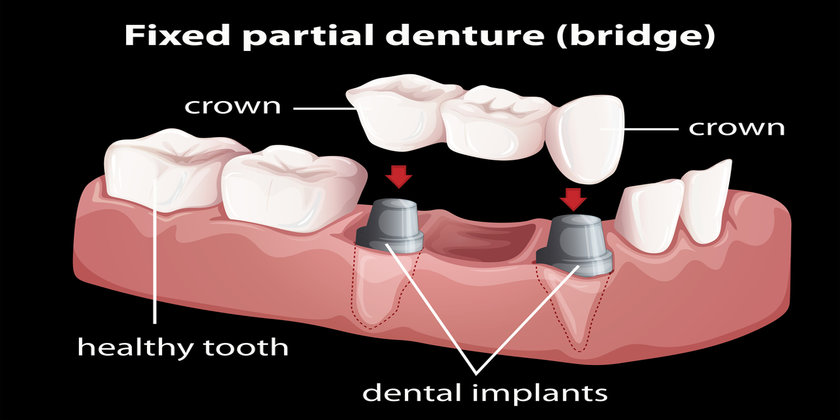If you are experiencing a missing tooth or teeth, it’s a good idea to replace it or them. So, it’s likely that you will be speaking to your dentist about dental bridges or dental implants in the near future. It’s also likely that your dentist can fill you in on the pros and cons of each treatment/procedure. But wouldn’t it be great if you could simply walk in with a better idea of what is entailed with both dental implants and dental bridges? The following is a brief look at each option. We’ll take a closer look at why one might be better for some people than the other.
Dental Implants — Definite Advantages
The following are some advantages of dental implants:
- The design of a dental implant is specific and precise — it will replicate, including the root, the entire tooth. The jawbone surrounding a lost tooth space begins to quickly reabsorb once the natural tooth and roots have been removed. Old bone cells will not be replaced by renewed ones if your jawbone isn’t stimulated by a replacement for the lost/missing tooth root. This can be stopped by using a dental implant post to replace the tooth root.
- Your dentist will not need to modify or cut down any of your existing teeth. In fact, the implants will help keep in their normal position, the rest of your natural teeth. It will stabilize adjacent teeth next to the gap. It will prevent opposite teeth from altering their position. It ensures that you have a solid foundation upon which to bite down.
- In the long term, treatments may be more cost-effective when renewing your bridge or implant crown because only the teeth that are missing are actually replaced. What’s more, single dental implants have in incredible aesthetic appeal. Just like your natural teeth, they emerge directly from your gums.
Got Healthy Teeth? A Dental Bridge May Not Be the Answer
A bridge may not be the best idea if the adjacent teeth are perfectly healthy. Your dentist might need to take out healthy tooth material just so that they can be crowned. Additionally, think about the time when that bridge needs to be replaced. The entire bridge will need to be replaced. The crowns on the adjacent teeth will have to be replaced. With dental implants, however, only the missing teeth restored need to be replaced.
When are Dental Bridge the Right Choice?
When there is a missing tooth, a bridge is made up of crowns placed on the teeth next to where the tooth is missing. Resting on your gums, the false tooth or replacement is attached to those. For this process to work, the adjacent teeth need to be prepared by your dentist. He/she will have to shape them and cut them down in order for the crowns to properly fit those adjacent teeth and not look unnatural or be too bulky.
You might, however, choose a bridge in the interest of speed. There will only be two appointments necessary: preparing your teeth will be one appointment; fitting the bridge will be the second appointment. In just a few weeks, you could have your new bridge. Also, a bridge may work nicely if the teeth next to the gap are decayed or already have large fillings. If they would already be helped by being crowned, this is a perfectly good option.
If dental implants, dental bridges, or any other dental procedure or treatment is in your future, make sure that the dentist you rely on is experienced and reputable. With advanced technology being what it is today, very few treatments or procedures are high-risk. You can lessen the risk even more by knowing that you can place your full trust in your family dentist, orthodontist, or cosmetic dentist.

